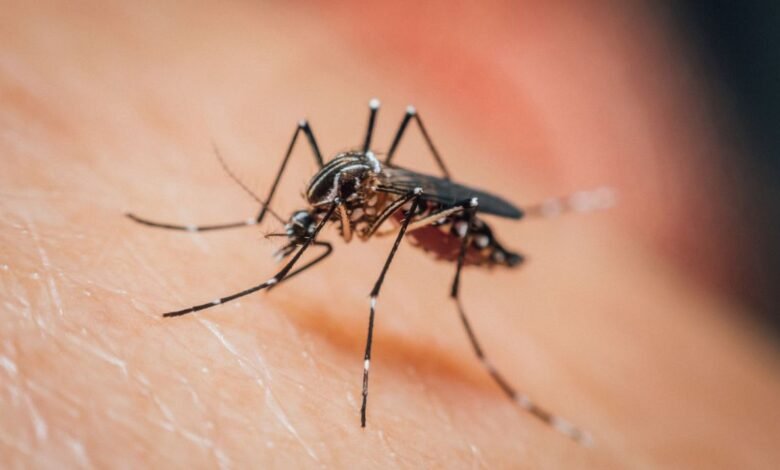Scientists discover drug that could make human blood deadly to mosquitos in fight against malaria

“One way to stop the spread of diseases transmitted by insects is to make the blood of animals and humans toxic,” according to researchers.
Researchers have discovered that a medication typically prescribed for rare diseases could make human blood deadly for mosquitoes, offering a potential lead to curb diseases such as malaria.
They experimented with a drug called nitisinone, which is usually prescribed to individuals with rare inherited diseases that typically prevent them from being able to fully break down certain amino acids.
The medication works by blocking an enzyme to prevent the build-up of harmful disease byproducts in the human body.
When mosquitoes drink blood that contains nitisinone, the drug also blocks the enzyme in their bodies, stopping them from properly digesting the blood, leading them to quickly die, according to their findings published in the journal Science Translational Medicine.
“One way to stop the spread of diseases transmitted by insects is to make the blood of animals and humans toxic to these blood-feeding insects,” Lee R Haines, associate research professor at the University of Notre Dame in the US and co-lead author of the study, said in a statement.
“Our findings suggest that using nitisinone could be a promising new complementary tool for controlling insect-borne diseases like malaria”.
Personal protective measures include wearing covering clothes, the use of mosquito repellent and the use of bed nets or window and door screens.
A growing need for mosquito control solutions
Another method is the use of ivermectin, used to kill parasites. However, its repeated use can lead to drug-resistance. It can also be toxic for the environment.
“Nitisinone performance was fantastic,” said Álvaro Acosta Serrano, professor of biological sciences at Notre Dame and co-corresponding author of the study.
“It has a much longer half-life in human blood than ivermectin, which means its mosquitocidal activity remains circulating in the human body for much longer. This is critical when applied in the field for safety and economical reasons,” he added.
Nitisinone was able to kill mosquitoes across all age groups, including older mosquitoes that are most likely to transmit malaria. It was also capable of eliminating insecticide-resistant mosquitoes.
“In the future, it could be advantageous to alternate both nitisinone and ivermectin for mosquito control,” Haines said.
“For example, nitisinone could be employed in areas where ivermectin resistance persists or where ivermectin is already heavily used for livestock and humans”.
Mosquito-borne diseases include malaria, dengue, West Nile virus, chikungunya and yellow fever, according to the European Centre for Disease Prevention and Control (ECDC).
They represent an emerging threat to human health in Europe with climate change creating more favourable conditions for invasive mosquito species despite malaria being eradicated from the continent for several decades.
Source link



